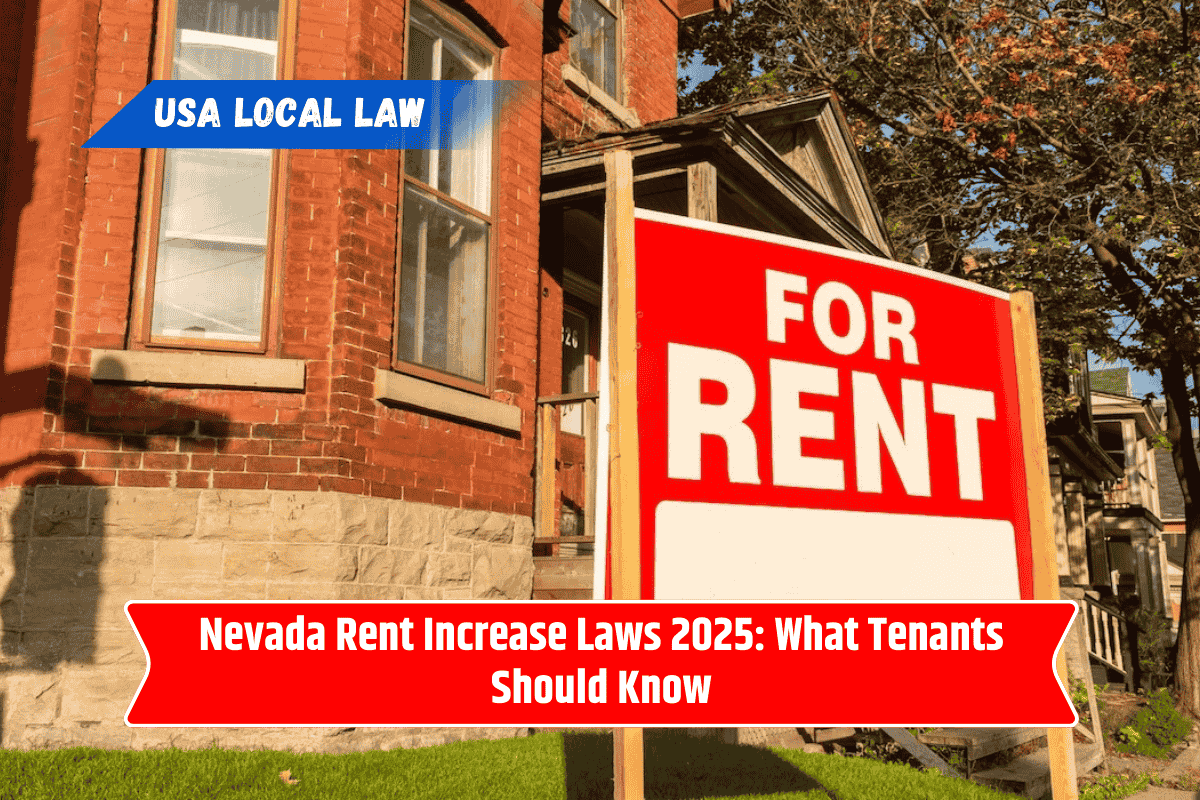Renting a home or apartment in Nevada comes with certain legal protections for tenants—but with rising living costs, many renters are wondering how much landlords can increase rent in 2025.
Whether you’re in Las Vegas, Reno, or a smaller Nevada city, understanding the state’s rent increase laws can help you protect your rights and plan ahead. Here’s a clear and easy-to-follow guide to what Nevada tenants should know about rent hikes in 2025.
Does Nevada Have Rent Control in 2025?
As of 2025, Nevada does not have statewide rent control laws. This means that, in most parts of the state, landlords can raise rent by any amount they choose—as long as they follow proper notice rules and are not discriminating or retaliating against the tenant.
However, some local governments—such as Clark County—are exploring tenant protection ordinances, so it’s important to check with your local housing authority for city-specific rules.
How Much Notice Must Landlords Give for Rent Increases?
Nevada law requires landlords to give tenants advance written notice before increasing rent. The required notice period depends on how often you pay rent:
| Rental Payment Frequency | Notice Required for Rent Increase |
|---|---|
| Week-to-week | 7 days’ notice |
| Month-to-month | 60 days’ notice |
| Fixed-term lease | No increase allowed until lease ends |
So, if you’re renting month-to-month, your landlord must give you at least 60 days’ written notice before raising your rent. If you’re on a yearly lease, they cannot raise the rent until your lease expires—unless the lease agreement specifically allows it.
Is There a Limit to How Much Rent Can Be Raised?
There is no legal cap on how much a landlord can increase your rent in most areas of Nevada. That means a landlord can legally raise the rent by 5%, 10%, or even more—as long as they give the proper notice and are not violating anti-discrimination or retaliation laws.
Some exceptions might apply in public housing or rent-subsidized programs, where rent increase amounts are regulated by federal or state guidelines.
Can Rent Be Raised During the Lease Term?
No, unless your lease agreement specifically allows mid-term rent increases, your landlord cannot raise your rent during an active lease. If your lease doesn’t mention rent changes, the amount must stay the same until the lease ends.
Always read your lease agreement carefully—some include clauses allowing annual increases or adjustments for utilities or other costs.
Can You Be Evicted for Refusing a Rent Increase?
Yes, if you’re on a month-to-month rental, and you do not agree to the new rent, your landlord can legally terminate the tenancy after proper notice. However, they still must follow the legal eviction process and cannot simply force you out without notice or a court order.
If you’re on a fixed-term lease, the landlord must wait until the lease expires before proposing a new rent amount.
Are There Any Tenant Protections from Unfair Increases?
While there’s no cap on rent increases, tenants are protected from:
Retaliatory rent increases: A landlord cannot raise rent just because you filed a complaint or joined a tenants’ union.
Discrimination: Increases cannot be based on race, religion, gender, age, disability, or other protected characteristics.
Lack of notice: If the landlord doesn’t give proper notice, the rent increase is not valid.
If you suspect a rent hike is illegal or retaliatory, you can file a complaint with the Nevada Real Estate Division or consult a tenant rights organisation.
Tips for Tenants Facing a Rent Increase
If your rent is going up, here are a few ways to handle it smartly:
Negotiate: Ask if the landlord is willing to lower the increase or offer upgrades.
Compare market rates: Research similar properties in your area to see if the new rent is fair.
Get everything in writing: Make sure all communication about rent changes is documented.
Seek legal advice: If you’re unsure about your rights, contact a legal aid group in Nevada.
In 2025, Nevada remains a no-rent-control state, meaning landlords can legally raise rent without a limit—as long as they provide proper notice and follow the law.
While this can be tough for tenants, knowing your rights around notice periods, lease terms, and protections against unfair increases can help you respond confidently. Always read your lease carefully, document communications, and seek help if something feels wrong.
